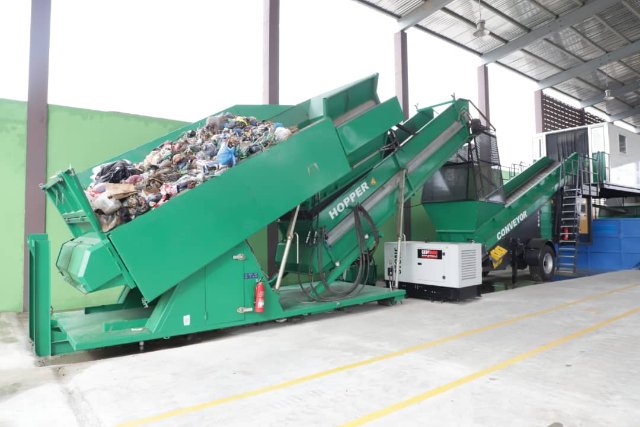
As part of the government’s effort to rid the country of filth, all 16 regions will get an ultra-modern integrated and compost waste recycling plant.
This comes after the commissioning of a 200-metric-tonne recycling plant in Accra as part of government’s one-district-one factory initiative.
Plant Manager, Emmanuel Oteng, in an interview on Adom FM‘s morning show, Dwaso Nsem Monday, said the commissioning of the facility was the first of 16 plants his outfit will construct in all the regions.
READ ALSO: One dead at Awudome after downpour on Sunday
He noted that, the plant, built by Zoomlion Ghana Limited,
with its European partner, Komptech, is a 400-tonne facility that employs the
most modern technology to recycle organic, plastic and other waste into usable
raw materials to feed agricultural and other industries.
Mr Oteng said the company has already procured all the machines to be installed in all regions to enable the government
“Accra generates 200-metric-tonnes of waste so the commissioning is very timely. We want to help President Akufo-Addo achieve his dream of making Accra the cleanest city in Africa,” he noted.
READ ALSO: Man buys wood with fake GH¢ 3,240 and gets 18 months jail term
But the only way this can be possible, he stressed, is through attitudinal change on how waste is disposed by the citizenry.
He noted that should the government construct the waste recycling plants and people
“We must change our attitude and see waste as an avenue for creating wealth. Let’s keep our environment clean for a healthy society,” he added.
READ ALSO: Ghanaian Police Chief Inspector dies in Togo under ‘suspicious’ circumstances
Mr Oteng said the era where waste disposal was a challenge in the country is over since the plant has the capacity to absorb all 200-metric-tonnes of waste generated in Accra daily.
Accra Waste Recovery
Park
Located at Old Fadama, the plant is to help recover waste
materials to produce compost and will serve as a resource for industries.
It is expected to create job opportunities for more than 500 people in the value chain, while at the same time offering students hands-on practical learning.
Source: Ghana|Adomonline.com|Adwoa Gyasiwaa Agyeman

